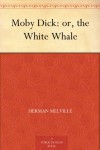Currently reading

At first, I was into it.
The characters were interesting, had cool jobs and slick lives, but were relatably and sympathetically troubled. Then each chapter brought a new character, and it was a little hard to keep track of at first but I got the hang of it and still wanted to keep going. I appreciated the glimpses into a scene I am too young to remember, the sense of urgency and glamour, the speculation of how a more reckless age affected characters years later.
But honestly, the last chapter ruined it all for me. From a vivid, not overly romanticized reflection on the wages of time and memory, the narrative suddenly veers into a heartless indictment of present-day music, marketing, and communication. Heartless because I think the author thinks that pop culture in the present day has no heart, that it's all text message abbreviations and viral marketing schemes, and her imagined future is just the logical extension of all that. But I do not think that's true or fair to the passion and hard work and enthusiasms of the world I know. So I lost quite a bit of faith that this book's representations of the past were true or fair, either.

Another book I picked up from a used book sale. The book grabbed me by its intro, which mixes pop culture and scifi/fantasy references with historical details from the Dominican Republic and a little bit of magic and curses. How does that even work? How is it possible that the first chapters describe the life and times of a teenaged boy whose defining tragedy is an inability to get laid? How can a book be so well-written and finely imagined that it managed to sell me on the story I am least interested in hearing?
But Junot Diaz made Oscar's story gripping, not pathetic. And I'm glad I stuck with him, because Oscar's story gave way to stories about his mother, his sister, his grandmother, their lives together and apart, in the States and in the Dominican Republic, living in a political climate that I can't even imagine, surviving unbelievable, almost supernatural events. I could not put this book down and I felt that I understood, in the end, how it all came together.
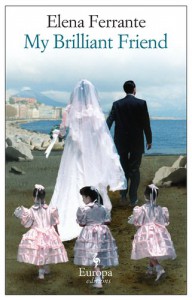
I picked this up at a used book sale about a week before the storm over the possible revelation of Ferrante's identity. I am still thinking about whether or not I care who the author "really" is, but the controversy reminded me to read the book. Which is extremely masterful: precise and detailed yet fluid and absorbing. Minutely observed psychology, arresting narrative that kept me reading.
But for most of the book, even though I couldn't put it down, I kept asking myself whether I loved the book. It's so well crafted, I thought to myself, but is this a book that I'm going to keep thinking about when it's done?
But the final chapters, culminating in the high tensions and dramas of a wedding in their fractured small town, simply blew me away. And two weeks after I finished it, I can say definitively that I have not stopped thinking about it. I love this book, although I love it with a slow burn rather than the rapid flare I associate with a good story.

This was a super-fast and engrossing read. I never could get into Lovecraft's stories, but I liked Victor Lavalle's Big Machine, so I figured I'd enjoy his take on Lovecraft's mythos. Even better: the story is packed with vivid description of Harlem during its Renaissance as well as its eldritch horrors, which are far more convincingly horrible than I recall from the source material. Plus, there is a gut-wrenching, take-no-prisoners callout to present day police violence, and I am here for it.
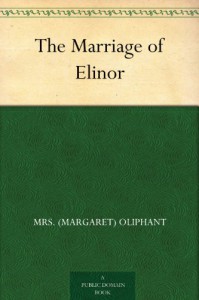
I was far more swept up in the drama of this 19th-century novel than I expected to be! I enjoy a good old-fashioned marriage plot, but Margaret Oliphant has a tendency to do a marriage plot with a slightly misandrist twist. The twist, here, is that Elinor marries a sexy man and won't listen to anyone's criticism of her choice. The sexy man turns out to be pretty terrible, so... spoiler... she leaves him! With their son! And she won't listen to anyone's criticism of that choice, either! Elinor 100% does what she wants and takes no guff about it. And, although she has her fair share of struggles, everything turns out more or less. No karmic punishments for this BAMF.
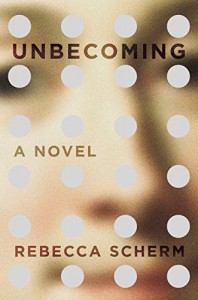
A book created in a lab for me:
A nice Southern girl struggles with fitting in when she moves to NYC, becomes both knowledgeable and cynical about art
So much art history, so much
This is a suspenseful book, you're always tensed up waiting for another shoe to drop
Elaborate, almost implausible heist plans!
More art history? How about lots of minutely detailed descriptions of furniture and jewelry!
In short, it's an art history mystery that also makes some very sharp observations about cultural and class differences, about family and romantic relationships, and about the muddiness of ethics. I drank it up.

Loved this charming, whimsical, and strangely sad coming of age novel set in 1930s England. Blogged about it here.

Do not judge this book by the free sample, if you go that route, because the story begins very comfortable and familiar with an ordinary girl who turns out to be secretly extraordinary. But then there's a battle a mere quarter of the way through, and then another, and then another, and the author does not pull punches on these scenes, which are rendered in cinematic detail and are all the scarier and higher stakes in contrast with scenes of beauty and wonder and the raw vulnerability of the heroine. I did not mean to read this book in three days but I couldn't do otherwise.
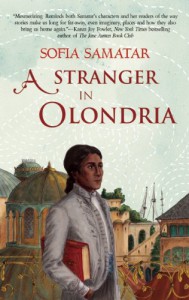
Most of the time when I am praising books, I say "I couldn't put it down!" I did put this book down often, and read it very slowly, especially at the beginning: it is so dense with sensory detail and cultural hints about its fantasy realms that it's like every scene unfolds in slow motion. But this makes sense for the narrator, who travels the island pepper farm of his childhood to a decadent empire across the sea, and immerses himself completely in the experiences of being in the big city. I took little sips of this book for the first quarter of it, and then suddenly things picked up and hurtled toward some very unexpected conflicts. This is a book to buy in print, not on Kindle as I did; it's a book that revels in books, the highs and lows of giving oneself over to storytelling, and it would be comforting to read in a more tactile form.
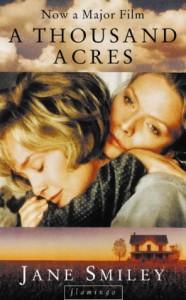
Beautiful and harrowing. I picked this novel up because it is frequently mentioned in broad surveys of food-focused literature, and indeed there are many important scenes that take place over meals as well as detailed descriptions of the never-ending domestic labor that Ginny and Rose undertake on the farm. But I hardly made note of these, because I was swept up in the minutiae of their family drama, neighborhood gossip, and domestic abuse.
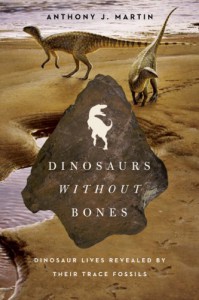
Written by a paleontologist who specializes in traces of dinosaur behaviors--footprints, teeth marks, nests, burrows, gastroliths, and more--this book paints a far more vivid picture of dinosaur life and habits than mere skeletons could provide. It is also chock full of dad jokes. Seriously, this book is teeming with puns and one-off references to geek culture. That doesn't make it a faster read--it's a dense book packed with scientific information and it'll take you awhile to get through it--but that does help make the experience extremely enjoyable. Also a plus: numerous anecdotes of the author's fieldwork and class trips and detailed explanations of paleontological practices that are accessible in part because they assume the reader is smart enough to understand them. I really enjoyed delving into the science of how we know what we know about dinosaurs, and what as-yet-unmade discoveries could advance our knowledge or turn it all on its head.
A+ read immediately after watching Jurassic World, for sure.

On the surface, this book is like a checklist of details I'm going to find boring or played out: small town in the 1970s, dead teenage girl, family drama, blah blah blah. Yet this is one of the most elegantly written and finely imagined novels I've read all year. As the girl's family staggers and breaks down in the wake of her death, the narrative wheels back and forth in time to reveal a thousand decisions and circumstances--racial microaggressions, gendered expectations, the burden of familial love and the loneliness of social isolation--that brought them all to this juncture.... suggesting that no one, but really everyone, is responsible for the tragedy. I drank the book up in two days and cried a lot as it was ending.
scenesofeating.com/2015/02/06/winter-chestnuts-and-other-literary-comforts
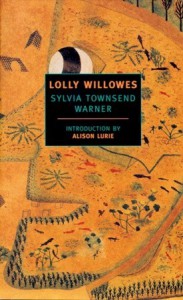
I really enjoyed this book, although I was surprised by the turn it eventually takes. This post is a little rumination on the role of food in the title character's life.

I really enjoyed this collection of linked essays about the history and taxonomy of food words. In fact, I finished it over one weekend of travel--it was accessible and breezy enough to be read continuously on three-hour train rides.
Each essay examines either a grouping of words (salad, salsa, sauce, salt) or a genre of food writing (menus, reviews, etc.), although the essays are well-connected and refer back to one another. About half the analysis is linguistic and makes use of specially written software to produce a quantitative report of when and how certain words are used. The other half is historical, tracing the evolution of certain words as they travelled from country to country centuries ago. The latter is interesting, but the former is useful, and I think I'll be incorporating some of the book's linguistic observations (such as how the sound of words influences perception of meaning) into my own writing.



